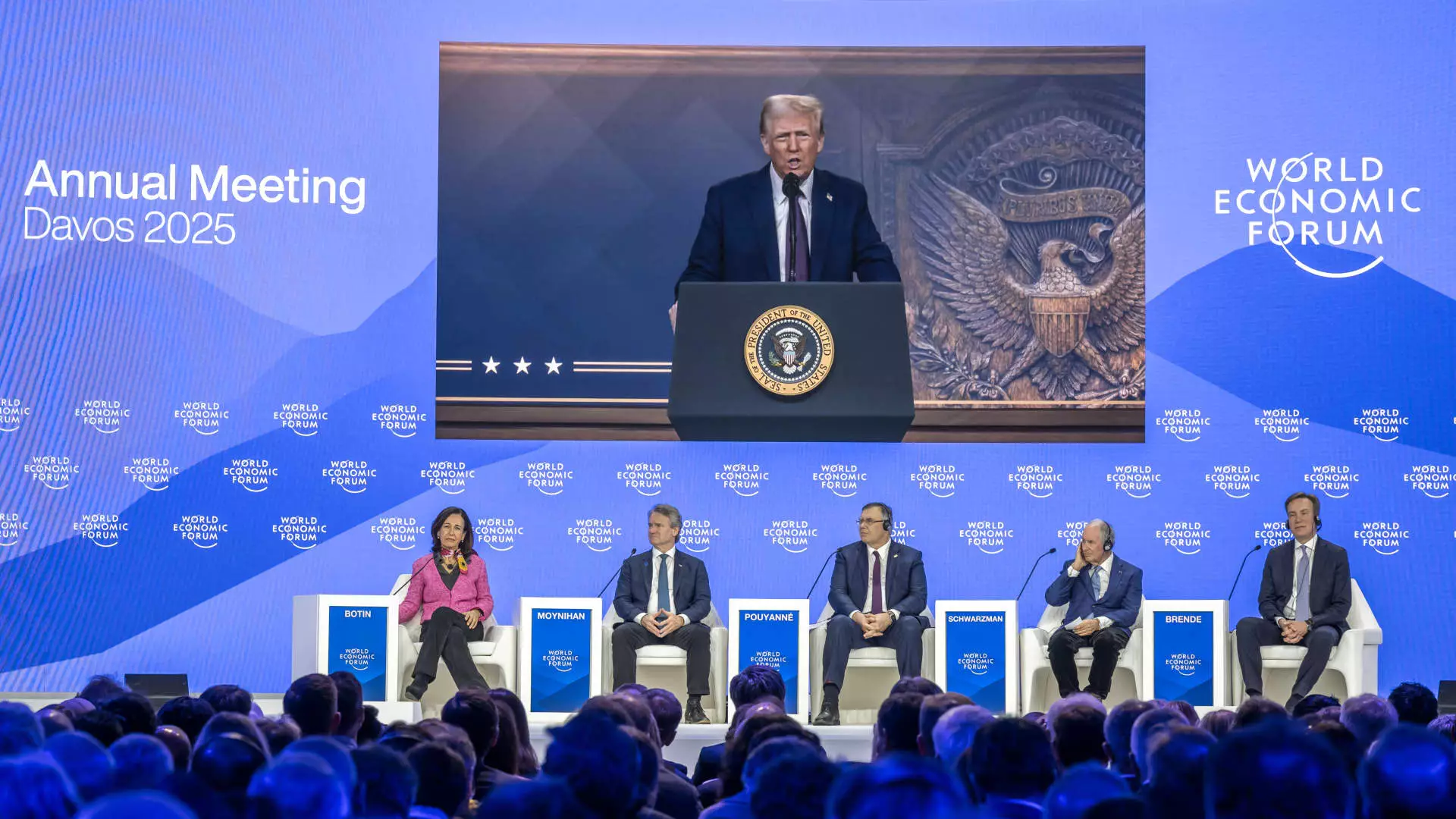In an increasingly polarized political landscape, the debate surrounding financial inclusivity and bias in banking practices emerged once again when former President Donald Trump accused two of America’s largest banks, Bank of America and JPMorgan Chase, of discriminating against conservatives. This accusation reignited discussions about political influence and the role of financial institutions in fostering—or hindering—diverse political views.
During a recent address at the World Economic Forum in Davos, Trump articulated his frustrations towards the banking sector, explicitly targeting the CEOs of Bank of America and JPMorgan Chase, Brian Moynihan and Jamie Dimon. He claimed that these banks are restrictive in serving conservatives, a notion that they both promptly denied. Trump’s comments are not new but are rather part of a broader narrative he has perpetuated as he gears up for another presidential campaign in 2024.
The assertion that banks intentionally marginalize conservatives is intertwined with broader discussions about the financial industry’s response after the 2008 financial crisis. Following this economic downturn, U.S. regulators imposed stricter guidelines aimed at increasing the overall safety of the financial system. These guidelines particularly targeted sectors deemed risky, leading to numerous accounts being closed for various reasons. Critics argue that these policies unfairly impacted certain groups, especially those involved in industries frequently associated with conservative values.
In response to Trump’s allegations, representatives from both Bank of America and JPMorgan Chase vehemently disputed the existence of any political bias within their operations. Bank of America’s official statement emphasized their commitment to a diverse clientele, serving over 70 million customers without a political litmus test. Meanwhile, JPMorgan’s spokesperson reinforced that the institution adheres to legal standards, rejecting accusations of closing accounts based on political beliefs.
The denials from these financial giants prompt a closer examination of the underlying issues. Are banks genuinely operating without a political agenda, or is there a disconnect between their corporate strategies and the political climate? As financial institutions navigate an era of heightened scrutiny, they must balance regulatory compliance with community trust, particularly among those who feel disenfranchised by the broader system.
The allegations made by Trump and others are not solely unfounded complaints; they are situated within a historical narrative of banking practices that have often led to accusations of discrimination. Following the 2008 crisis, banks became more vigilant in assessing customer risk, leading to widespread account closures in sectors perceived as problematic. Industries such as payday lending and firearms sales have often found themselves on the receiving end of scrutiny, with accusations of being unfairly targeted.
In April 2023, Kansas Attorney General Kris Kobach sent a letter to Bank of America citing instances where the bank had allegedly canceled the accounts of “religious groups with mainstream views.” The bank’s response shed light on its decision-making processes, suggesting that there are lawful reasons behind account closures that are not politically motivated. Despite this, the narrative persists among some influential figures close to Trump, who allege systemic bias exists against conservative beliefs.
The accusations and ongoing discussion about bias in banking raise important questions about the role of major financial institutions in American society. As large banks such as Bank of America and JPMorgan Chase are seen as barometers for financial health and inclusivity, perceptions of discrimination can have far-reaching implications. Trust in the banking system is paramount, and accusations of politically motivated actions could exacerbate existing divides.
Furthermore, if financial institutions are to navigate this charged environment successfully, they need to be transparent not just about their adherence to regulatory guidelines, but also about their commitment to serving the diverse fabric of American society, including its political plurality. Rumors of discrimination can undermine trust and deter potential customers, leading to a detrimental cycle for businesses that rely on a broad customer base.
As the political landscape continues to evolve, it is crucial for the banking sector to remain vigilant and responsive to concerns regarding inclusivity. The discourse surrounding Trump’s accusations highlights a critical crossroad for American banking—one that will necessitate not only regulatory compliance but also genuine community engagement. Both banks’ stocks saw positive movement following Trump’s remarks, indicating that, despite the accusations, institutional credibility and financial performance remain resilient. However, as political tensions rise, financial institutions must ensure that their practices reflect a commitment to support all constituents, regardless of their political affiliations.
While Trump’s accusations may be politically motivated, they underscore broader issues of perception, trust, and the critical role banks play in the fabric of American democracy. The challenge lies in balancing profit with principled service in a time of heightened scrutiny and division.

